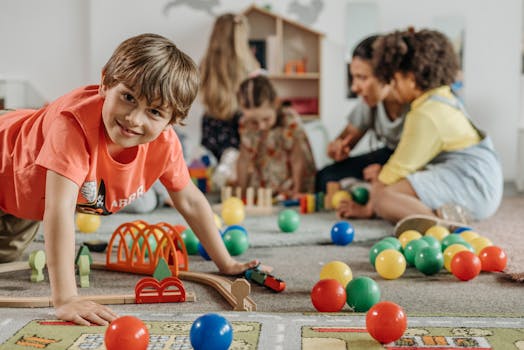How to Help Your Child Develop Social Skills and Make Friends
In today’s interconnected world, social skills are essential for children to thrive both personally and academically. The ability to make friends and interact positively with peers can significantly impact a child’s self-esteem, emotional well-being, and overall development. As a parent, you play a crucial role in helping your child cultivate these skills. This article will explore effective strategies to support your child in developing social skills and forming meaningful friendships.
Understanding Social Skills
Social skills encompass a range of abilities that enable individuals to communicate, interact, and build relationships with others. These skills include:
- Effective communication
- Empathy and understanding
- Conflict resolution
- Active listening
- Cooperation and teamwork
Research indicates that children with strong social skills are more likely to succeed academically and have better mental health outcomes. According to a study published in the journal *Child Development*, children with well-developed social skills are more likely to have positive relationships with peers and adults, leading to a more fulfilling life.
Encouraging Playdates and Group Activities
One of the most effective ways to help your child develop social skills is through regular playdates and group activities. These interactions provide opportunities for children to practice their social skills in a safe environment. Here are some tips to facilitate these experiences:
- Organize playdates: Invite classmates or neighbors over for playdates. Choose activities that encourage collaboration, such as board games or arts and crafts.
- Join clubs or teams: Enroll your child in extracurricular activities like sports, music, or art classes. These settings promote teamwork and help children meet peers with similar interests.
- Encourage group projects: If your child is involved in school projects, encourage them to work with classmates. This fosters cooperation and communication.
For example, a study conducted by the American Psychological Association found that children who participated in team sports showed improved social skills and increased self-esteem compared to those who did not engage in such activities.
Modeling Positive Social Behavior
Children learn a great deal from observing their parents and caregivers. By modeling positive social behavior, you can teach your child how to interact effectively with others. Here are some ways to do this:
- Demonstrate empathy: Show empathy in your interactions with others. Discuss feelings and the importance of understanding different perspectives.
- Practice active listening: When your child speaks to you, give them your full attention. This teaches them the value of listening to others.
- Engage in conversations: Encourage open discussions at home. Ask your child about their day and share your experiences, fostering a two-way communication style.
By consistently demonstrating these behaviors, you provide your child with a blueprint for successful social interactions.
Teaching Conflict Resolution Skills
Conflict is a natural part of social interactions. Teaching your child how to handle disagreements constructively is vital for developing strong social skills. Here are some strategies:
- Encourage problem-solving: When conflicts arise, guide your child in brainstorming solutions rather than simply telling them what to do.
- Role-play scenarios: Use role-playing to practice conflict resolution. This can help your child feel more prepared when faced with real-life situations.
- Discuss emotions: Help your child identify their feelings and those of others during conflicts. Understanding emotions can lead to more empathetic responses.
A study published in the *Journal of Child Psychology and Psychiatry* found that children who learned conflict resolution skills were better equipped to manage disputes with peers, leading to healthier relationships.
Encouraging Independence and Self-Confidence
Building social skills also involves fostering independence and self-confidence in your child. Here are some ways to encourage these traits:
- Allow decision-making: Give your child opportunities to make choices, whether it’s selecting their clothes or deciding on weekend activities.
- Encourage self-expression: Support your child in expressing their thoughts and feelings. This can be through art, writing, or verbal communication.
- Celebrate achievements: Acknowledge your child’s efforts and successes, no matter how small. This boosts their confidence and encourages them to engage socially.
According to a report by the National Association for the Education of Young Children, children who feel confident in themselves are more likely to initiate social interactions and build friendships.
Conclusion
Helping your child develop social skills and make friends is a multifaceted process that requires patience, guidance, and support. By encouraging playdates, modeling positive behavior, teaching conflict resolution, and fostering independence, you can equip your child with the tools they need to navigate social situations successfully. Remember, the goal is not just to make friends but to build meaningful relationships that contribute to your child’s overall happiness and well-being. With your support, your child can thrive socially and emotionally, paving the way for a fulfilling life ahead.
